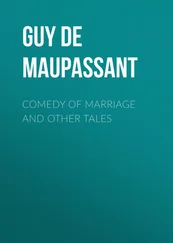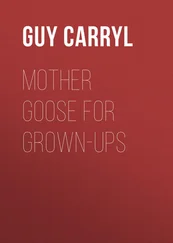Guy Carryl - Zut, and Other Parisians
Здесь есть возможность читать онлайн «Guy Carryl - Zut, and Other Parisians» — ознакомительный отрывок электронной книги совершенно бесплатно, а после прочтения отрывка купить полную версию. В некоторых случаях можно слушать аудио, скачать через торрент в формате fb2 и присутствует краткое содержание. Жанр: foreign_prose, на английском языке. Описание произведения, (предисловие) а так же отзывы посетителей доступны на портале библиотеки ЛибКат.
- Название:Zut, and Other Parisians
- Автор:
- Жанр:
- Год:неизвестен
- ISBN:нет данных
- Рейтинг книги:4 / 5. Голосов: 1
-
Избранное:Добавить в избранное
- Отзывы:
-
Ваша оценка:
- 80
- 1
- 2
- 3
- 4
- 5
Zut, and Other Parisians: краткое содержание, описание и аннотация
Предлагаем к чтению аннотацию, описание, краткое содержание или предисловие (зависит от того, что написал сам автор книги «Zut, and Other Parisians»). Если вы не нашли необходимую информацию о книге — напишите в комментариях, мы постараемся отыскать её.
Zut, and Other Parisians — читать онлайн ознакомительный отрывок
Ниже представлен текст книги, разбитый по страницам. Система сохранения места последней прочитанной страницы, позволяет с удобством читать онлайн бесплатно книгу «Zut, and Other Parisians», без необходимости каждый раз заново искать на чём Вы остановились. Поставьте закладку, и сможете в любой момент перейти на страницу, на которой закончили чтение.
Интервал:
Закладка:
Somehow, in none of his calculations had the idea of invoking assistance ever played a part. Naturally, as a reasoning being, he had foreseen the present crisis for some months, but at the time when the inevitable catastrophe first became clear to him it was already too late to regain his balance, since the remainder of his inheritance was so pitifully small that any idea of retrieving his fortunes through its instrumentality was simply farcical. The swirl of the rapids, as he had then told himself, had already caught his boat. All that was left to do was to go straight on to the sheer of the fall, with his pennant flying and himself singing at the helm. Then, on the brink, a well-placed bullet – no bungling for Anthony Cazeby! – and the next day people would be talking of the shocking accident which had killed him in the act of cleaning his revolver, and saying the usual things about a young man with a brilliant future before him and everything in life for which to live.
And this plan he had carried out in every detail – save the last, to which he was now come; and his was the satisfying conviction that not one of the brilliant, careless men and women, among whom he lived, and moved, and had his being, suspected for a moment that the actual circumstances differed in the least from the outward appearances. He thought it all over carefully now, and there was no play in the entire game that he felt he would have liked to have changed.
Sentiment had no part in the makeup of Anthony Cazeby. Lacking from early childhood the common ties of home affection, and by training and profession a diplomat, he added to a naturally undemonstrative nature the non-committal suavity of official poise. But that was not all. He had never been known to be ill at ease. This was something which gained him a reputation for studious self-control. As a matter of fact it was due to nothing of the sort. No one had ever come fairly at the root of his character except Cazeby père, who once said, in a fit of passion, "You don't care a brass cent, sir, whether you live and are made President of the United States, or die and are eternally damned!" And that was exactly the point.
Something of all this had passed through Cazeby's mind, when he was suddenly aroused to an appreciation of his whereabouts by the sound of a voice, to find that the curious instinct of direction which underlies advanced inebriety and profound preoccupation alike, had led him up the avenue du Trocadéro, and across the place, and that he had already advanced some little way along the avenue d'Eylau in the direction of his apartment. The street was dimly lighted, but, just behind him, the windows of a tiny wine-shop gave out a subdued glow, and from within came the sound of a violin. Then Cazeby's attention came around to the owner of the voice. This was a youngish man of medium stature, in the familiar street dress of a French laborer, jacket and waistcoat of dull blue velveteen, peg-top trousers of heavy corduroy, a crimson knot at his throat, and a dark tam o'shanter pulled low over one ear. As their eyes met, he apparently saw that Cazeby had not heard his first remark, and so repeated it.
"I have need of a drink!"
There was nothing of the beggar in his tone or manner. Both were threatening, rather; and, as soon as he had spoken, he thrust his lower jaw forward, in the fashion common to the thug of any and every nationality when the next move is like to be a blow. But, for once, these manifestations of hostility failed signally of effect. Cazeby was the last person in the world to select as the object of sudden attack, with the idea that panic would make him easy prey. In his present state of mind he went further than preserving his equanimity: he was even faintly amused. It was not that he did not comprehend the other's purpose, but, to his way of thinking, there was something distinctly humorous in the idea of holding up a man with only sixty centimes to his name, and menacing him with injury, when he himself was on his way to the upper right hand drawer of the marqueterie desk.
"I have need of a drink," repeated the other, coming a step nearer. "Thou art not deaf, at least?"
"No," said Cazeby, pleasantly, "no, I am not deaf, and I, too, have need of a drink. Shall we take it together?" And, without waiting for a reply, he turned and stepped through the doorway of the little wineshop. The Frenchman hesitated, shrugged his shoulders with an air of complete bewilderment, and, after an instant also entered the shop and placed himself at the small table where Cazeby was already seated.
"A vitriol for me," he said.
Cazeby had not passed three years in Paris for nothing. He received this remarkable request with the unconcern of one to whom the slang of the exterior boulevards is sufficiently familiar, and, as the proprietor leaned across the nickled slab of his narrow counter with an air of interrogation, duplicated his companion's order.
"Deux vitriols!"
The proprietor, vouchsafing the phrase a grin of appreciation, lumbered heavily around to the table, filled two small glasses from a bottle of cheap cognac, and stood awaiting payment, hands on hips.
"Di-ze sous," he said.
There was no need to search for the exact amount. Cazeby spun his fifty-centime piece upon the marble, added his remaining two sous by way of pourboire, and disposed of the brandy at a gulp.
"Have you also need of a cigarette?" he inquired, politely, tendering the other his case.
For some minutes, as they smoked, the diplomat and the vagabond took stock of each other in silence. In many ways they were singularly alike. There was in both the same irony of lip line, the same fair chiseling of chin and nostril and brow, the same weariness of eye. The difference was one of dress and bearing alone, and, in those first moments of mutual analysis, Cazeby realized that there was about this street-lounger a vague air of the gentleman, a subtle suggestion of good birth and breeding, which even his slouching manner and coarse speech were not wholly able to conceal: and his guest was conscious that in Cazeby he had to deal with no mere society puppet, but with one in whom the limitations of position had never wholly subdued the devil-may-care instincts of the vagabond. The one was a finished model of a man of the world, the other a caricature, but the clay was the same.
"I am also hungry," said the latter suddenly.
"In that respect," responded Cazeby, in the same tone of even politeness, "I am, unfortunately, unable to assist you, unless you will accept the hospitality of my apartment. It is but a step, and I am rather an expert on bacon and eggs. Also," he added, falling into the idiom of the faubourgs, "there is a means there of remedying the dryness of the sponge in one's throat. My name is Antoine."
"I am Bibi-la-Raie," said the other shortly. Then he continued, with instinctive suspicion, "It is a strange fashion thou hast of introducing a type to these gentlemen."
"As a matter of fact," said Cazeby, "I do not live over a poste. But whether or not you will come is something for you to decide. It is less trouble to cook eggs for one than for two."
Bibi-la-Raie reflected briefly. Finally he had recourse to his characteristic shrug.
"After all, what difference?" he said. "As well now as another time. I follow thee!"
The strangely assorted companions entered Cazeby's apartment as the clock was striking one, and pressure of an electric button, flooding the salon with light, revealed a little tea-table furnished with cigarettes and cigars, decanters of Scotch whiskey and liqueurs, and Venetian goblets of oddly tinted glass. Cazeby shot a swift glance at his guest as this array sprang into view, and was curiously content to observe that he manifested no surprise. Bibi-la-Raie had flung himself into a great leather chair with an air of being entirely at ease.
Читать дальшеИнтервал:
Закладка:
Похожие книги на «Zut, and Other Parisians»
Представляем Вашему вниманию похожие книги на «Zut, and Other Parisians» списком для выбора. Мы отобрали схожую по названию и смыслу литературу в надежде предоставить читателям больше вариантов отыскать новые, интересные, ещё непрочитанные произведения.
Обсуждение, отзывы о книге «Zut, and Other Parisians» и просто собственные мнения читателей. Оставьте ваши комментарии, напишите, что Вы думаете о произведении, его смысле или главных героях. Укажите что конкретно понравилось, а что нет, и почему Вы так считаете.












